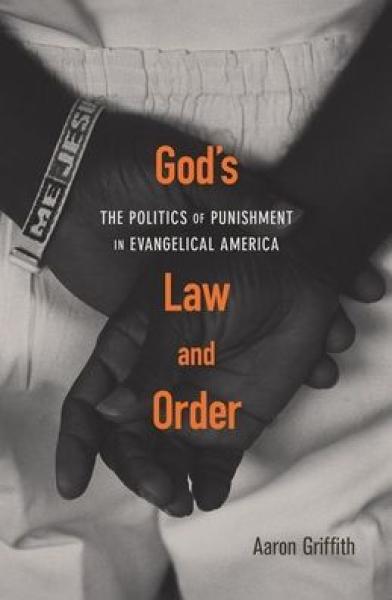Description
An incisive look at how evangelical Christians shaped--and were shaped by--the American criminal justice system.
America incarcerates on a massive scale. Despite recent reforms, the United States locks up large numbers of people--disproportionately poor and nonwhite--for long periods and offers little opportunity for restoration. Aaron Griffith reveals a key component in the origins of American mass incarceration: evangelical Christianity.
Evangelicals in the postwar era made crime concern a major religious issue and found new platforms for shaping public life through punitive politics. Religious leaders like Billy Graham and David Wilkerson mobilized fears of lawbreaking and concern for offenders to sharpen appeals for Christian conversion, setting the stage for evangelicals who began advocating tough-on-crime politics in the 1960s. Building on religious campaigns for public safety earlier in the twentieth century, some preachers and politicians pushed for "law and order," urging support for harsh sentences and expanded policing. Other evangelicals saw crime as a missionary opportunity, launching innovative ministries that reshaped the practice of religion in prisons. From the 1980s on, evangelicals were instrumental in popularizing criminal justice reform, making it a central cause in the compassionate conservative movement. At every stage in their work, evangelicals framed their efforts as colorblind, which only masked racial inequality in incarceration and delayed real change.
Today evangelicals play an ambiguous role in reform, pressing for reduced imprisonment while backing law-and-order politicians. God's Law and Order shows that we cannot understand the criminal justice system without accounting for evangelicalism's impact on its historical development.
There is more to the story of mass incarceration than civil rights backlash politics. It is also a religious story. Aaron Griffith points to the key role played by evangelical Christians, who worked for conversion of prisoners and pushed an anticrime agenda that, while ostensibly colorblind, exacerbated racial inequality in the justice system.
Aaron Griffith is Assistant Professor of History at Sattler College, where he teaches American history and the history of Christianity. A former postdoctoral fellow at the John C. Danforth Center on Religion and Politics and instructor at Washington University's Prison Education Program, he has written for the Washington Post and Religion News Service.
Griffith explores how evangelicals have overlooked systemic racial inequalities and disparities that drove their approach to crime and punishment.--Yonat Shimron"Religion News Service" (11/16/2020)
A stunning work that shakes up our preconceived notions of evangelicalism and criminal justice. It is a must-read for any person of faith who longs to see more compassionate and more just responses to crime in our nation.-- (11/09/2020)
If Griffith's book prompts evangelical believers to apply the gospel not only to individuals in prison but also to the structure of the prison system itself, that would undoubtedly be a good thing. And maybe in the process, as Griffith suggests, the gospel will induce repentance not only among those behind bars but also among some evangelicals who voted for the policies that put so many there in the first place.-- (11/01/2020)
An outstanding contribution to religious history and the history of criminal justice. Griffith offers a deeply researched, limpidly written, and exceedingly well balanced account of the surprisingly complex involvement of white evangelicals with issues of criminal justice, prison ministries, and prison reform. His compelling narrative reveals persistent ambiguities--genuine concern for prisoners, intermittent concern for prison reform, and general lack of awareness about issues of race in criminal justice. I am not aware of anything that comes even close to the sophistication of Griffith's treatment of this subject.--Mark Noll, author of A History of Christianity in the United States and Canada
Considering ongoing clashes over incarceration, social and criminal justice, and race, God's Law and Order couldn't be more timely. With a balanced and sympathetic touch, Griffith reveals the surprising extent to which law and order concerns have not just driven evangelicalism's public engagement since the mid-twentieth century, but also stirred its passions for ministry and reform. This brilliantly crafted and beautifully written work forces us to reevaluate the origins of the religious right and adopt a wider purview when trying to make sense of evangelicalism's political ascent and present course of action. This book deserves--indeed, demands--a wide readership.--Darren Dochuk, author of Anointed with Oil: How Christianity and Crude Made Modern America
Griffith's account of how modern evangelicalism and the carceral state came of age together is nothing short of pathbreaking. Ranging across time and region with unusual sensitivity and keen insight, he weaves a gripping narrative, full of surprising turns and unintended consequences. The connections between past and present jump off these pages; make no mistake, the story that unfolds in God's Law and Order is far from over.--Heath W. Carter, author of Union Made: Working People and the Rise of Social Christianity in Chicago
In God's Law and Order, Griffith connects the simultaneous rise of evangelicalism and mass incarceration, illuminating the way religious leaders played a central role in shoring up support for devastating punitive programs. Carefully researched and persuasively argued, Griffith's rich history makes enormous contributions to our understanding of politics and culture in modern America.--Elizabeth Hinton, author of From the War on Poverty to the War on Crime: The Making of Mass Incarceration in America
Product Details
- Harvard Brand
- Nov 10, 2020 Pub Date:
- 0674238788 ISBN-10:
- 9780674238787 ISBN-13:
- 352 Pages
- 9.3 in * 6.4 in * 1.3 in Dimensions:
- 2 lb Weight:




